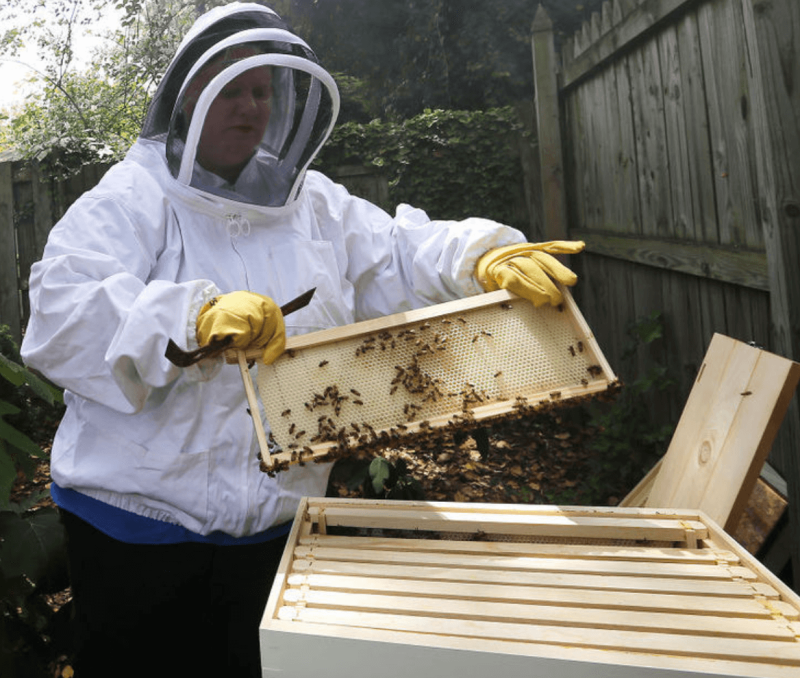The much-publicized decline of the nation’s honeybee population is greatly exaggerated, according to the organizers of a new [Indiana] beekeeping organization. Paradoxically, the biggest threat to bees is people who want to help the insects flourish.
Behind the headlines about the bees’ plight are national studies that focus on how many of the insects perish each year, not the net population, which leads to wildly inaccurate counts, said beekeeper Michael Scott, who helped form the group Indiana PA Honey Bee last year.
Since the government stopped subsidizing beekeepers in the 1940s, many people stopped registering their colonies as is required in Pennsylvania, prompting researchers to determine that a significant number have died off. But because these surveys are sent only to those who register their hives, the method is faulty, Scott said.
…
Most novices who buy colonies get them through the mail from the South — usually Georgia — but they are warm-weather bees that often can’t survive Pennsylvania winters. The starter packages that come from warmer climates have an 80 percent failure rate here, he said. Hundreds of thousands of packages are sold this way, at a big profit.
…
“It’s a ripple effect,” Scott said, so he and others in the group recognize the importance of educating others.
The GLP aggregated and excerpted this article to reflect the diversity of news, opinion and analysis. Read full, original post: Novices pose biggest threat to honeybees, local keepers say































